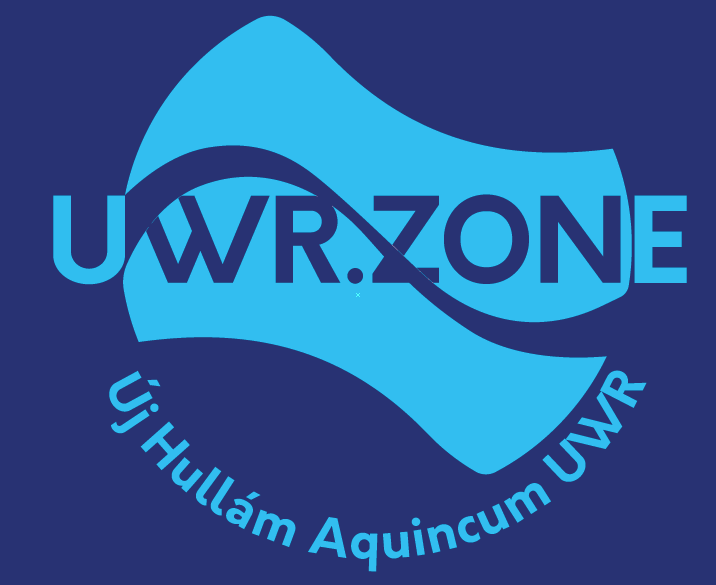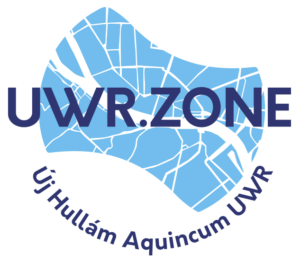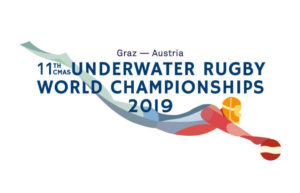While researching sources of sports history there was a man whose story stood out even from such a star-packed aquatic antiquity like the Hungarian. The more I’ve read about Olivér Halassy, the more certain I was about the program‘s name as I was writing it. His dedication is a perfect example to follow for anyone with goals. One of the far-right sites have a short biography of him which covers one of his life’s most remarkable moments with as much emotion as he probably caused in his supporters at the time.

On the picture you can see the Hungarian national water polo team of the Los Angeles Olympics in 1932: Ivády, Bródy, Vértesy, Németh, Homonnai, Keserű and Halassy. Probably you missed it at first sight that Olivér Halassy, age 23, standing at the end of the row, is missing a left foot. 2x Olympic-, 3x times European-champion water polo player, European-champion freestyle swimmer, with several Hungarian-champion titles. Paralympics have not yet existed, yet he was the world’s first Paralympic champion. Should he was born in the US, you would’ve seen a movie about his life already.
He was born on the 31th of July, 1909. in Újpest. Like many other local boys he also started playing soccer in the youth team of UTE where his talent was spotted. He was 8 when a tram car severed his leg in an accident. His left foot had to be amputated. A year later he was attending trainings at the pool of UTE. Despite the challenges in the beginning, at the age of 17 he surprised everyone coming in first in a competition organised on the Danube. He needed an hour and 4 minutes for the 9 km. track from the Szentendre-island to the MAC athletic center on Margitsziget. The previous champion lead the race till midway with great advantage, still fell behind the sprinting Halassy. This was the moment which gained him recognition.
He was 19 in 1928 when Béla Komjádi invited him onto the national olympic for the Amsterdam Olympics. They came back with a 2nd place. He collected 10 national water polo champion and 23 national swimming champion titles, also setting national swimming records 12 times. Member of the gold medalist Olympic water polo team in Los Angeles and Berlin.
Despite the participation in so many Olympic events, one of his most remarkable performances was in 1931, at the European Championships in Paris.At the E.C. the Hungarian national water polo team defended it’s title as champions against Netherlands. While his teammates were celebrating the success, Olivér excused himself to take on the next event. The finals of the 1500m freestyle were starting. Here the French Jean Taris and the Italian Paolo Costolli were the sure bets, everyone expected them to duell for the first place. Nothing turned out as expected. Not only because the race was caught in a blizzard, and the referees had trouble keeping the times, but because the Hungarian amputee swimmer accomplished something unbelievable. Between each turn he past by his opponents, but his turns were slow due to his handicap, so he kept falling back. Still he managed to beat his opponents and came in first before the Italian Giuseppe Perentin with a meter advantage.
The totally exhausted Halassy was pulled out of the pool by the swimming champion István Bárány. He needed to be carried into the changing rooms. There they poured the energy drink of the times, tea with lots of sugar into his mouth till he pulled his strength together again. Gratefully he returned to the pool where the Germany vs. Austria match had to be cancelled because of the audience’s ovation. The crowd was chanting “Halasszi! Halasszi!”. Even the referees stopped to give him applause.
He swam for another 6 years and played water polo for another 8 years before his retirement at the age of 30. First he worked at a manufactory in Újpest, later became a clerk. He started a family, had 3 daughters. After the 2nd World War, he took part in reorganizing the Hungarian aquatic sports scene. On the 10th of September in 1946 he was on his way to the swimming federation in a taxi. A soviet patrol pulled them over and pulled guns on the driver and him claiming the vehicle. It’s events are not clear, most likely the two men resisted. Somewhat later the taxi was found without wheels in a distant street. Days before the birth of Halassy’s third daughter, at the age of 37, Olivér Halassy was shot on the spot along with the driver.
Despite the witnesses, the case was covered up, the news reported about a brutal mugging, not mentioning soviet soldiers. His family was threatened to stay silent about the events. Yet everyone knew about it. The farewell speech was given by Alfréd Hajós at his funeral. Olivér Halassy, one of the most emblematic Paralympic athletes of Hungary, was mourned by thousands.




